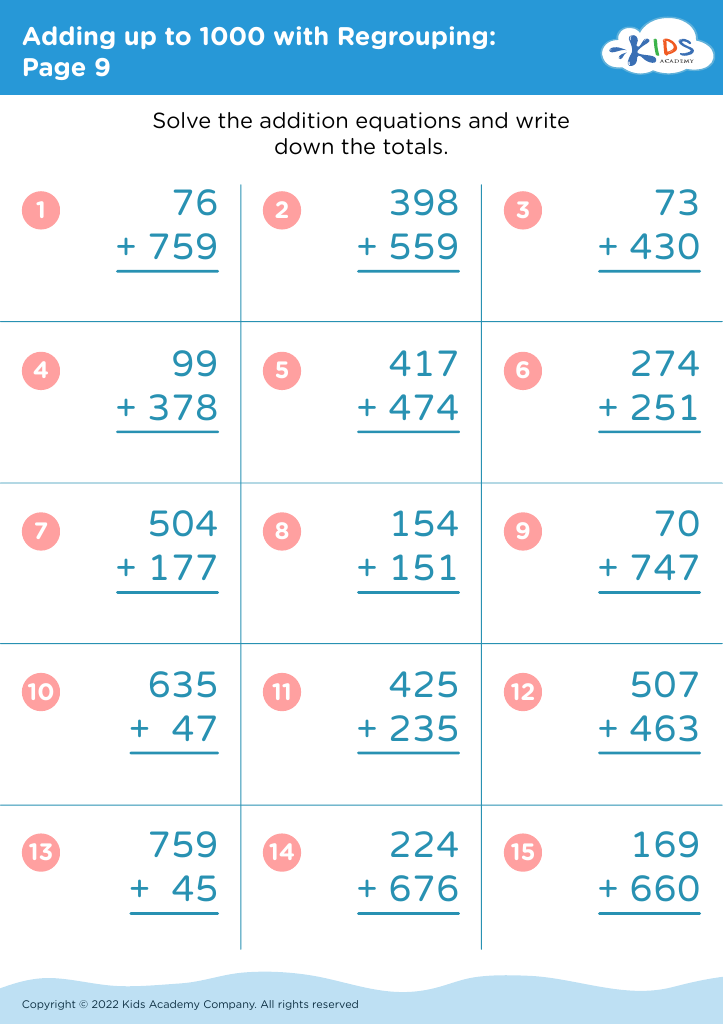Mathematical reasoning Adding up to 1000 with Regrouping Worksheets for Ages 5-7
3 filtered results
-
From - To
Title: Mathematical Reasoning: Adding up to 1000 with Regrouping Worksheets for Ages 5-7
Boost your young learner's math skills with our "Adding up to 1000 with Regrouping" worksheets, specially designed for children ages 5-7. These engaging and educational worksheets enhance mathematical reasoning by helping kids practice addition with regrouping, building their confidence and accuracy in handling larger numbers. Each worksheet is crafted to support young minds in mastering essential math skills through fun, interactive activities. Perfect for both classroom and home use, these worksheets provide the tools needed to develop strong foundational math concepts early on. Teach with confidence and watch your young mathematician thrive!
Mathematical reasoning forms the cornerstone of cognitive development and problem-solving skills in children. For ages 5-7, mastering addition up to 1000 with regrouping is critical for various reasons. First, it establishes a robust foundation for future math concepts. Understanding regrouping transitions children from simple to more complex multi-digit operations, fostering an appreciation for number sense and place value.
Second, these skills improve logical thinking and decision-making. When children learn to regroup, they engage in mental exercises that require understanding, analyzing, and manipulating numbers. These activities enhance their cognitive abilities and boost critical thinking, applicable in all academic subjects.
Third, early proficiency in math correlates with academic confidence. Repeated success builds a child’s self-esteem and motivation, encouraging persistence in problem-solving across various scenarios. Proficiency in math prepares students for tackling more sophisticated subjects efficiently and effectively.
Moreover, it integrates seamlessly with everyday life. From calculating savings in a piggy bank to distributing items evenly, involving kids in real-life math applications makes the learning experience relevant and exciting. Therefore, parents and teachers nurturing these skills are not merely focusing on numerical competencies but are setting the stage for comprehensive educational and personal growth, ultimately leading to lifelong learning and success.













